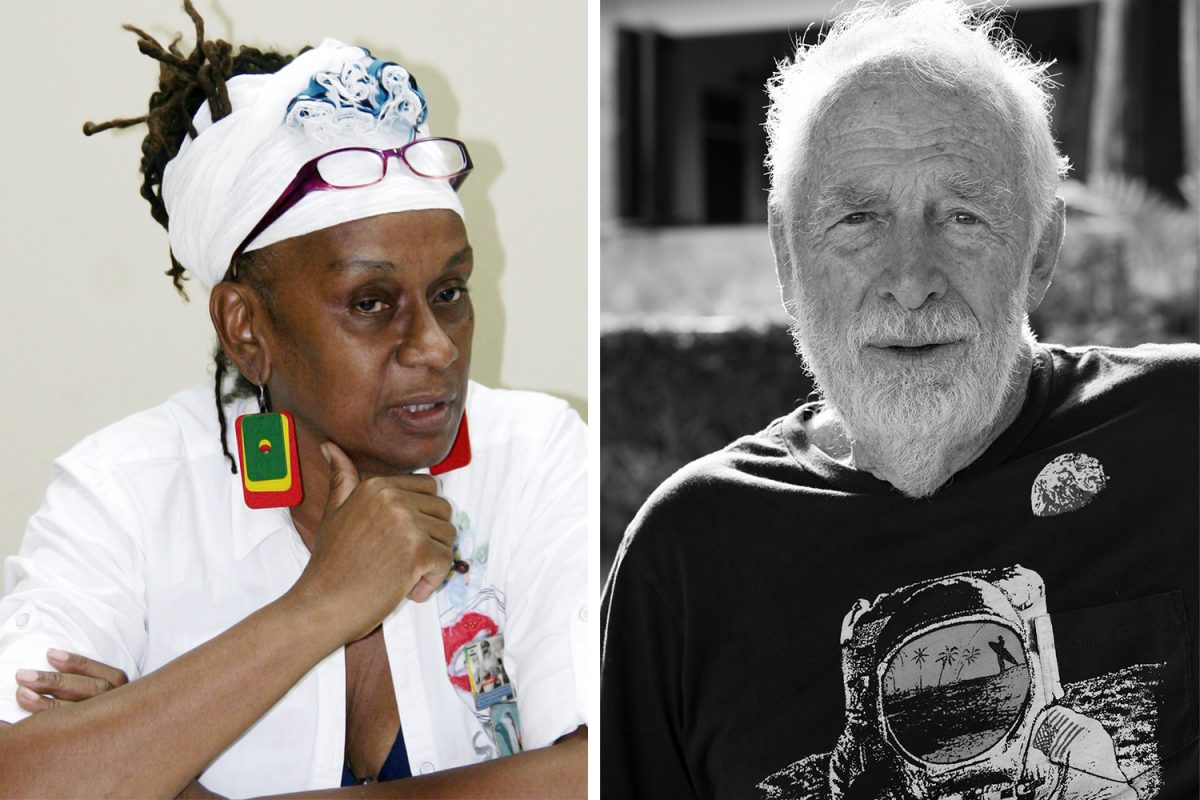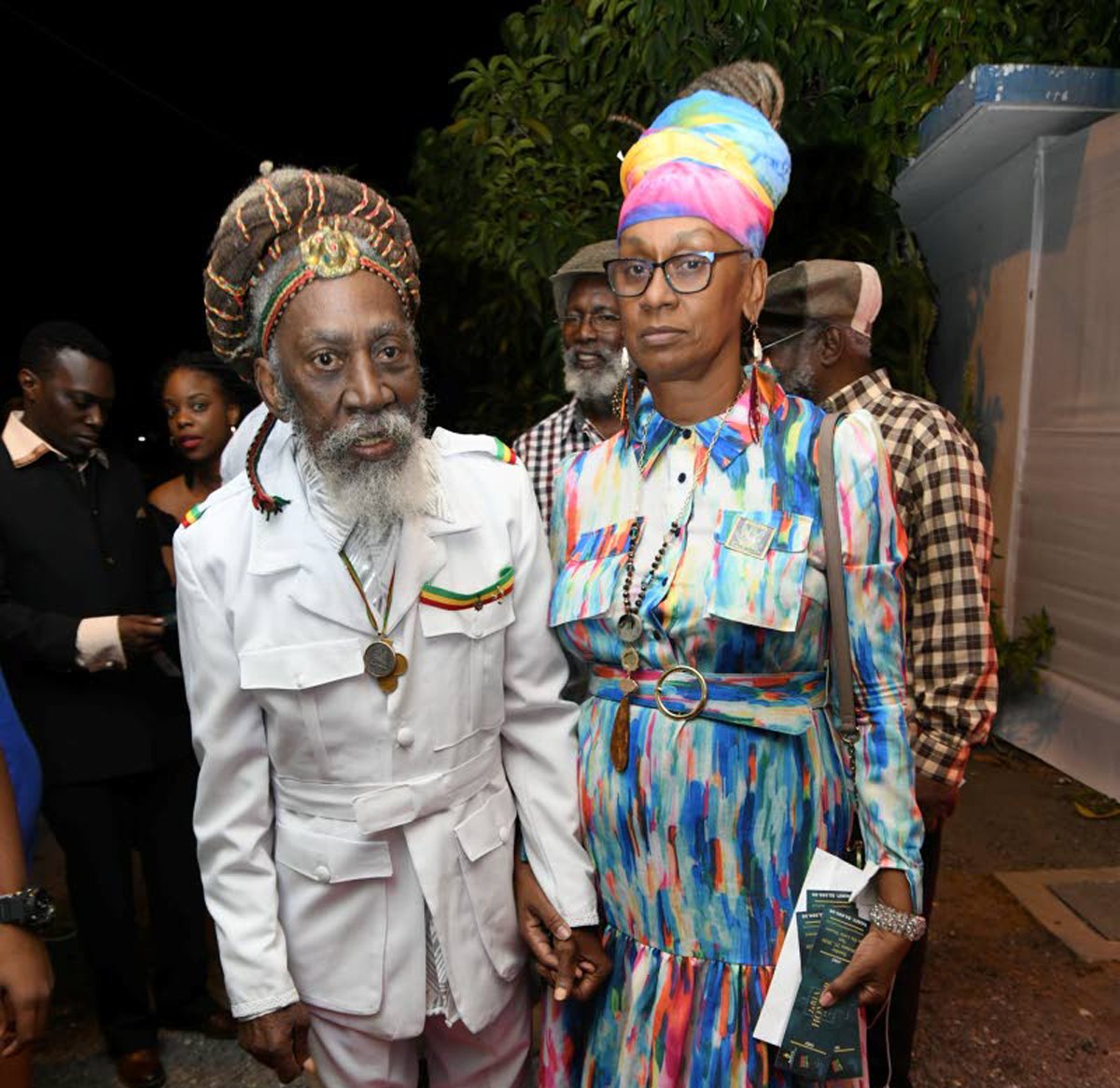Maxine Stowe Calls Out Chris Blackwell’s “White Knight Storyline”

Attorney-at-law Maxine Stowe has taken issue with some of the content from Chris Blackwell’s upcoming memoir, maintaining that what the Islands Records co-founder described as an ‘unfounded perception of favoritism towards Bob Marley’, was real, and was, according to her, “pre-meditated false marketing” aimed at ‘black erasure’ of Peter Tosh and Bunny Wailer.
Her comments come in the aftermath of the publication of excerpts from Blackwell’s new book, titled Islander: My Life in Music and Beyond , and suggestions, on DancehallMag‘s Facebook page, that “the Wailers were too talented to stay together” and that Bob Marley was more “steadfast and driven than Peter and Bunny”.
In response, Stowe, who served as the late Bunny Wailer’s manager up to the time of his death, referenced British band The Beatles, noting that although they had split, the works they created as a group are credited to all of its members, unlike the Wailers, which she maintains, was fragmented by an unjust Blackwell, who credited all the Intellectual Property, including songs penned and sung by Bunny and Peter, to Marley.
“So were The Beatles, the difference being the world knows who The Beatles are and respect their group works, catalog, IP and achievements whereas Blackwell’s marketing result has the world thinking that The Wailers are Bob Marley’s solo backing band of musicians!” Stowe wrote in a comment.
“So it’s not ‘perceived favoritism’ it’s ‘pre-meditated false marketing’ that results in loss of valuable identity rights, intellectual property rights, publishing etc. It is also extends to the ‘Favoritism’ in the Jamaica Music Industry relating to the ‘Two Jamaicas’!” she said alluding to the long-held notion of entrenched double standards on the island, where two sets of rules continue to be being applied depending on a person’s social status, and where the well-connected are shielded from prosecution.

Going further, Stowe said that Blackwell’s actions also resulted in an almost-erasure of the contributions of Jimmy Cliff, who, according to reports, had become unsatisfied with the way in which Island Records appeared to pay more attention to its rock acts, and left the label shortly before Blackwell met Bob Marley.
“Jimmy Cliff has been quite unfairly written out of the Blackwell/Island/Popular History story as having the seminal role and foundation that Bob Marley reaped from The Worlds Fair in New York in 1964 to The Harder They Come in 1972!” Stowe said of the Trapped artist.
“This history has a lot to do with Blackwell’s Marley Pop Star storyline, inclination and success. Jimmy while securing as deep & wide accolades built on the Island years, like Bunny & Peter is also made silent!” she added.
Further incensed by the contents of Blackwell’s memoir, in which he insinuated that her uncle Clement Coxone Dodd, had hoodwinked artists, Stowe ripped into the now 84-year-old Englishman, describing as mortifying, his comment that “Bunny had it in his head that I owed them some money. Maybe it was a Coxsone distraction: point the finger somewhere else”.
She then went on to hammer the octogenarian over what she described as “The Blackwell Distraction”, saying that he should have used the negative comments about her uncle, and about Jamaica being awash with cases of artists being cheated of what was due to them, to describe his own conduct.
“Blackwell’s White Knight storyline of saving Jamaican Artists from corrupt local producers is not only farcical it literally reeks with Racism! A more fair critique would have him repositioning himself outside of Jamaica in 1962 to England and building his Trojan/Island Brand on the Backs of these “Black Producers”!
According to Stowe, based on Blackwell’s own logic, all Jamaican producers and their proxies, which would include the Englishman himself, could therefore be classified as “robbers”, because of how the system at the time was “built without protection”, inter alia in, the absence of a copyright law at the time.
“Is Leslie Kong/Beverly’s a co-founder of Island classed in this farcical BS of local “corruption” wherein he the White Knight encouraged all the artists to sing over many of their best songs, literally robbing the robbers to benefit Island/Blue Mountain!” she argued.
“This is why a Jamaican Music Museum cannot be built! I am quite fond of Roger Steffens collection experience, however whatever is curated there for a Museum Will not scratch the surface or requirement to capture the foundation and creative process and unprotected rights of the majority Afro Jamaicans!” she said.
Peter Tosh’s former manager, Copeland Forbes also weighed in on the matter, noting that Bob, Peter and Bunny were extraordinarily talented, and were loaded with “talents and ideas from their own perspective”, so it was not far-fetched that they would have split to pursue their solo careers. He noted, however, that the trio ought to have tidied their business affairs before the split.
“They should have made proper arrangements so that when those moments of separation finally arrived all the T’s were crossed and i’s dotted,” Forbes noted, adding that: “Bunny was the first to quit in 1973 after the UK leg of the Catch A Fire tour and Peter and Wire Lindo left in 1974, leaving just Bob and the two Barrett brothers to keep the Wailers/BMW ship afloat.”
In February 2010, director/curator of the Jamaica Music Museum at the Institute of Jamaica, Herbie Miller who was Tosh’s first manager, had also rued the erasure of Tosh and Bunny, by what he described as “clever record company public relations and publicity personnel and other interest parties that distort reggae music’s reality, purposely or innocently”.
In an opinion piece in The Gleaner titled Re-empowering the Unsung Wailers – The importance of Peter Tosh and Bunny Livingston to Marley’s ascendancy, the cultural historian who has specialized interest in slave culture, Caribbean identity and ethnomusicology, had said there were redress misconceptions perpetuated about the music which he and other historians and commentators were attempting to dispel.
“The case of the original Wailers, who were primarily Bob Marley, Bunny Livingston and Peter Tosh, but at times included Junior Braithwaite, Beverly Kelso, Cherry Green, Rita Marley and Constantine ‘Dream’ Walker, is a paramount and instructive case. It is a case, which, according to a Marley insider, without any apology, seeks to “position Bob in the public consciousness morning, noon and night”. What was implied is that this would be done without much, if any, mention of the others who have been part of the group,” Miller had written.
The historian had also highlighted an occasion where a popular radio disc jockey played an extended selection of old Wailers recordings at the beginning of the week that would mark Peter Tosh’s birthday, and repeatedly referred to the selections as Bob Marley’s without acknowledging the others, “even when Tosh or Livingston was obviously the lead singer”, and on some selections where Marley was clearly not present.
Miller said that after he telephoned the station to point out the error to the disc jockey, and to suggest that he dedicate the session to Peter Tosh since the Mama Africa singer’s birthday was only a few days away, the man, curtly dismissed him, declaring that he knew what he was doing and did not need his opinion.
“This is the kind of mindset that is cultivated if Bob Marley continues to be positioned in the public consciousness at the expense of the other principal members of the original Wailers, the group which, in my opinion, is Jamaica’s finest,” Miller had noted.
